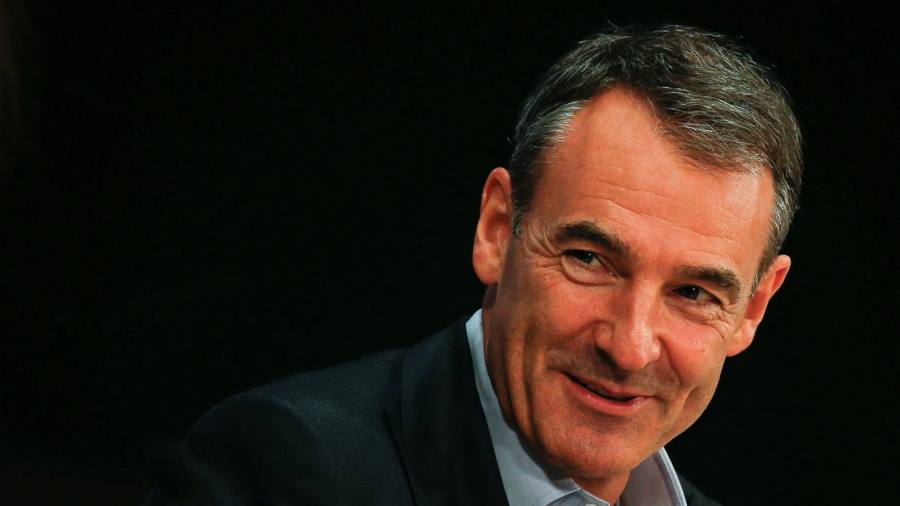BP: Looney leans in to a longer runoff for oil

BP’s Bernard Looney claims he is “leaning in” on his renewables strategy. Lean too far, and a person can end up staggering. Energy prices soared last year. But the shares of the UK-listed oil major trail far behind those of US rivals ExxonMobil and Chevron, which are less fond of greenery.
Looney’s messaging when announcing record full-year profits on Tuesday reflected that pressure more than demands in the UK for higher windfall taxes.
When the chief executive took over in 2020 he boldly promised to reduce crude production by 23 per cent to 2mn barrels daily by 2025. He planned to invest heavily in the energy transition. Two years on, his determination to forswear fossil fuels appears weaker.
Last year’s surplus cash flow of $19.3bn was triple the figure for 2021, hence the UK hue and cry. But BP’s effective tax rate has climbed 2 percentage points in the past year to 34 per cent, partly due to added levies. Exxon’s is closer to 26 per cent.
Total shareholder returns for BP — and Shell — are roughly half those of Exxon and Chevron over one year. This reflects shareholder unease over renewables investment as much as over windfall taxes. BP has increased the outlook of $16bn-$18bn in spending on upstream production this year from a target of $14bn-$16bn back in 2020.
Some of that increase comes from inflation. But oil production for 2025 would now fall only about 11 per cent from 2019 to 2.3mn barrels per day. Those volumes are needed, oil bulls say, to cover the west’s lost supply from Russia. BP’s oil price assumption for income from those added barrels has risen from $60 to $70.
Higher forecast upstream profit helps pay for Looney’s renewables spending, an additional $8bn cumulative by 2030. Nearly half of this money goes to hydrogen and renewable power areas. The latter offers modest investment returns of no more than 8 per cent.
Looney read the presentation room well, if not the mood of green campaigners perturbed by prevarication. The share price jumped 5 per cent. The reality is that the marginal buyer of BP’s shares believes the energy transition will take longer, with scope for increased oil and gas output. BP is compromising in a bid to catch up with US peers.
The Lex team is interested in hearing more from readers. Please tell us how you think pressure for profits, renewables and higher taxes will play out for BP in the comments section below
Share this news on your Fb,Twitter and Whatsapp
Times News Express:Latest News Headlines
Times News Express||Health||New York||USA News||Technology||World News